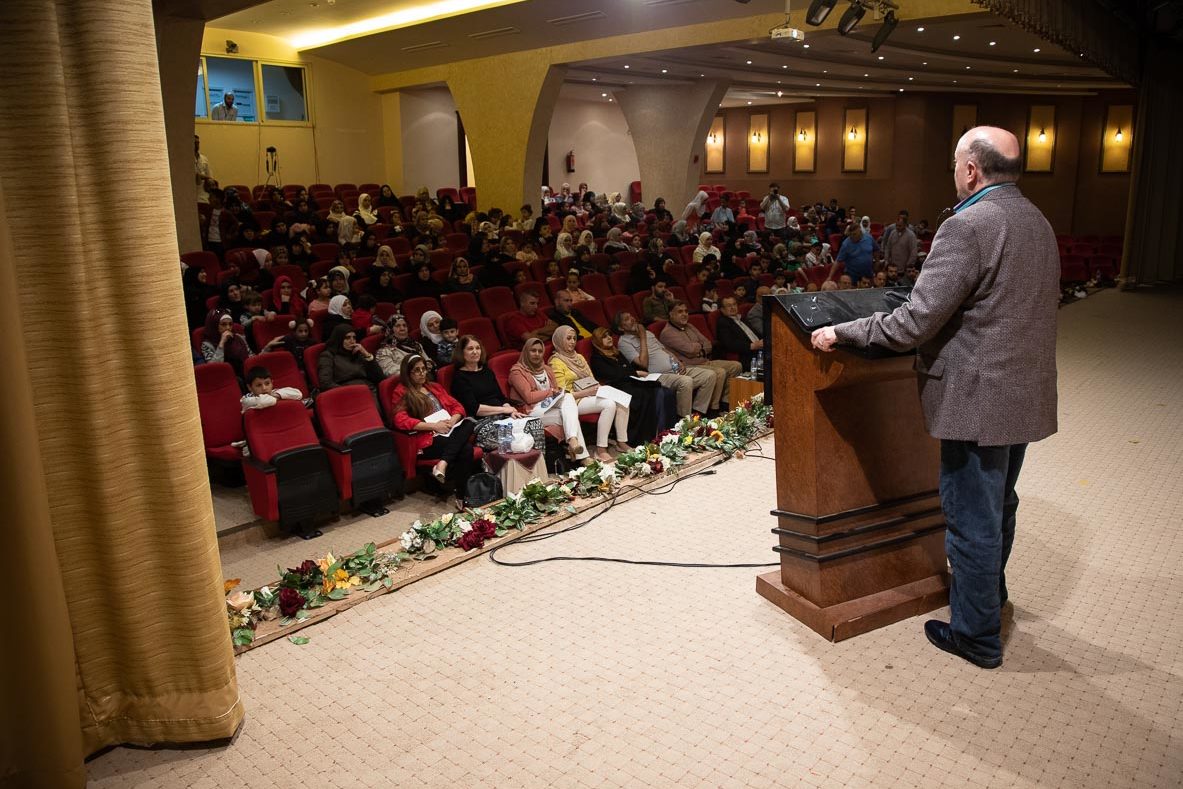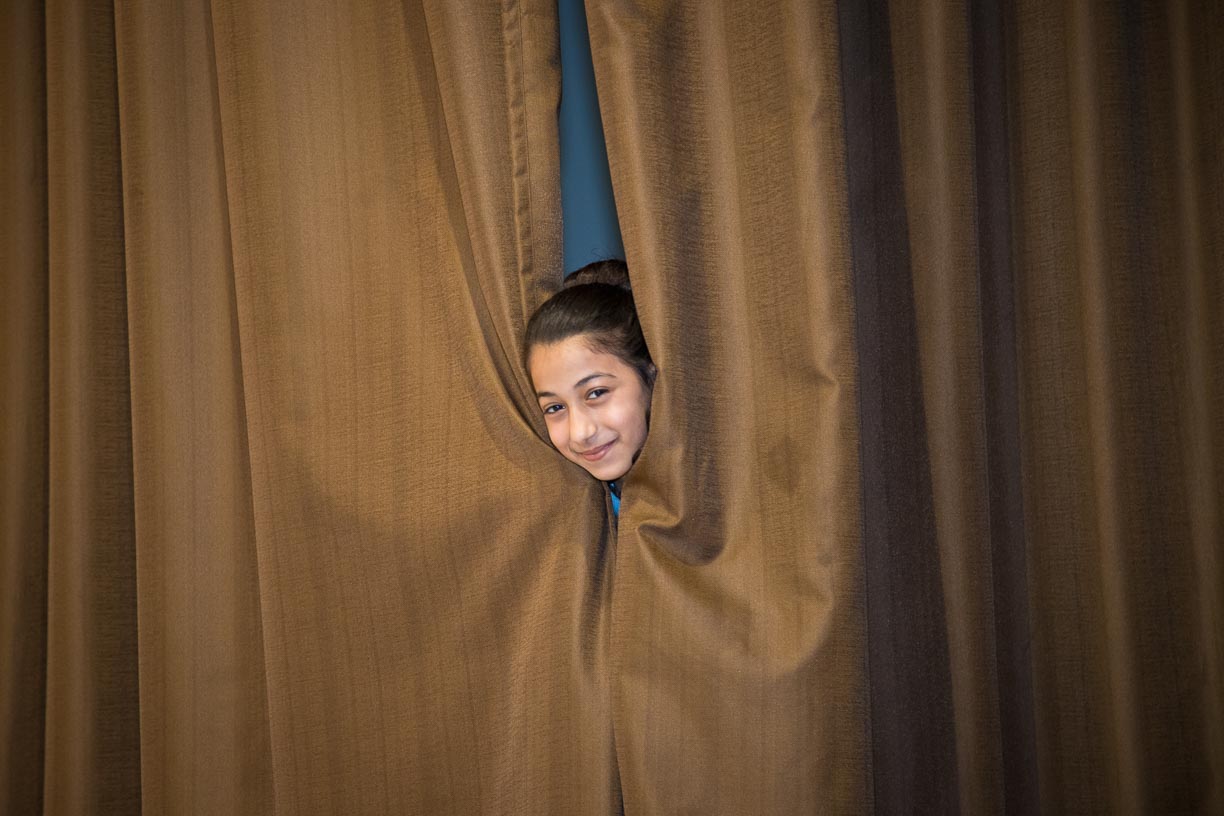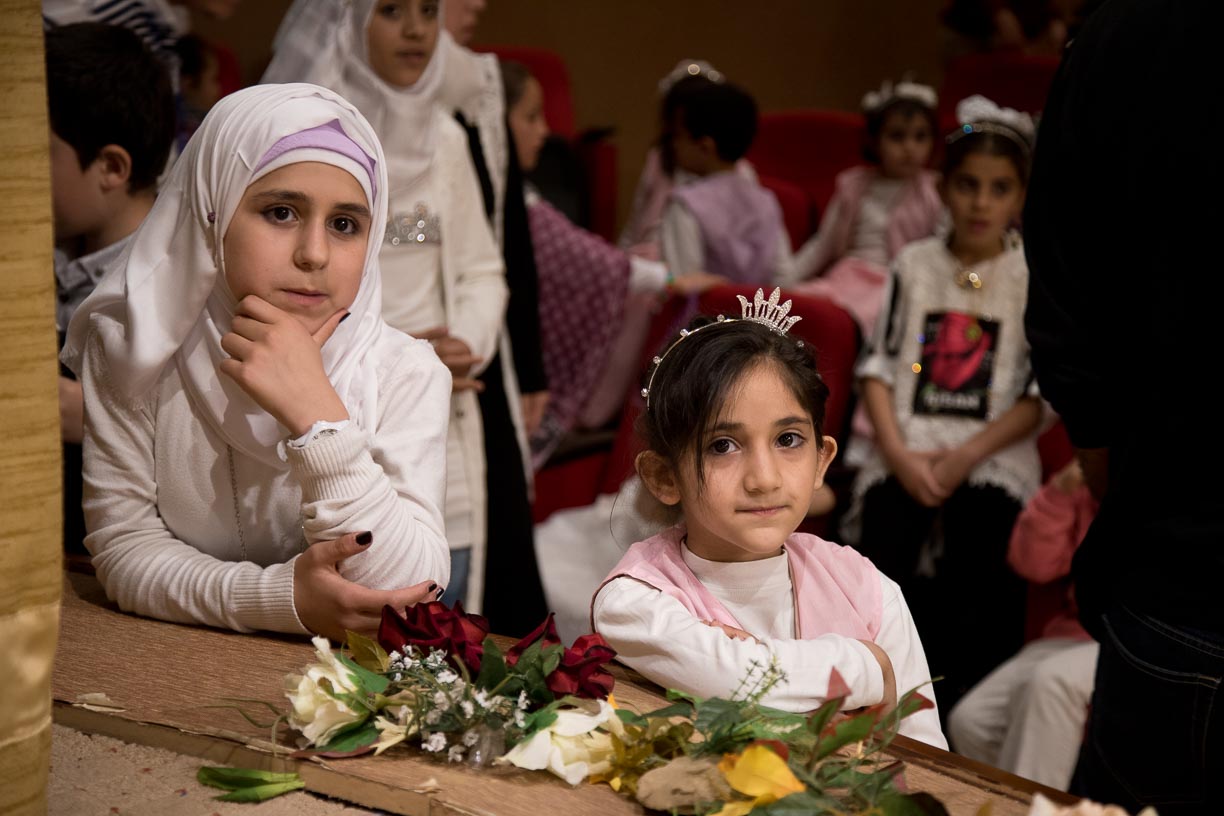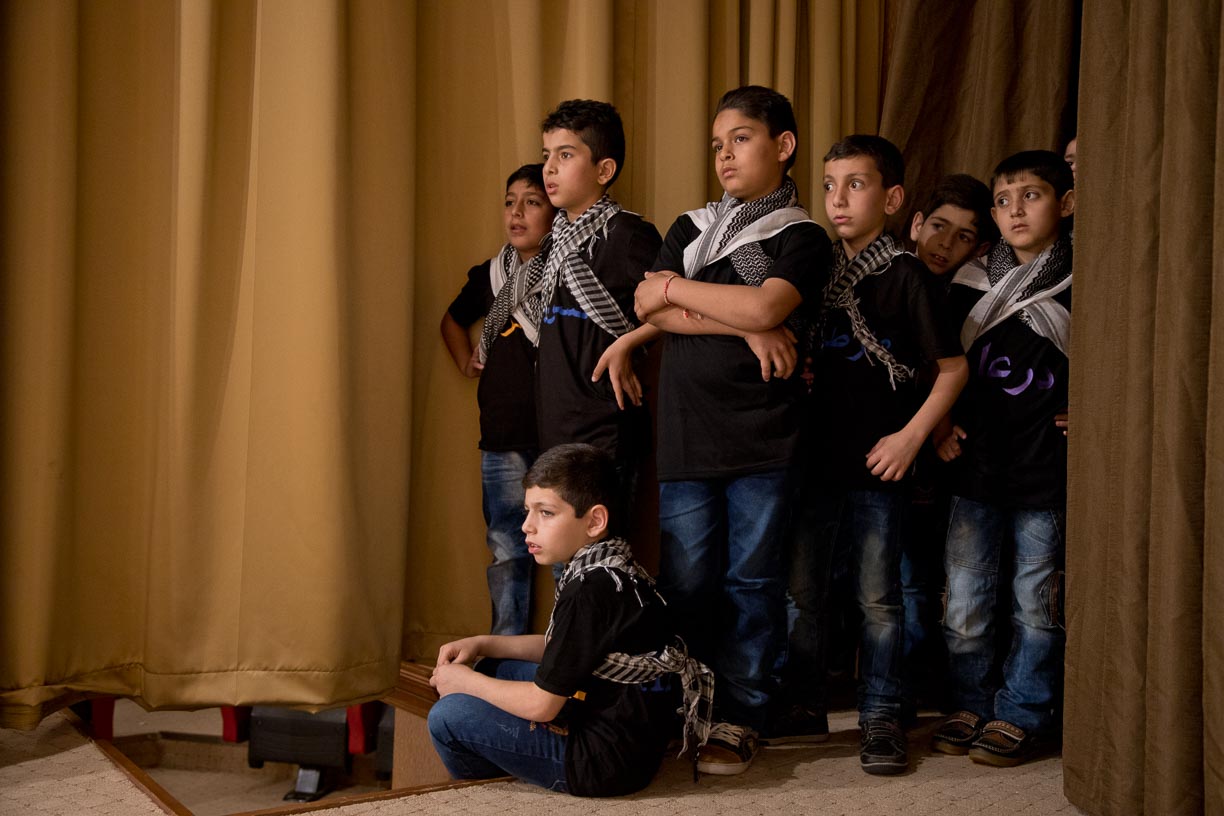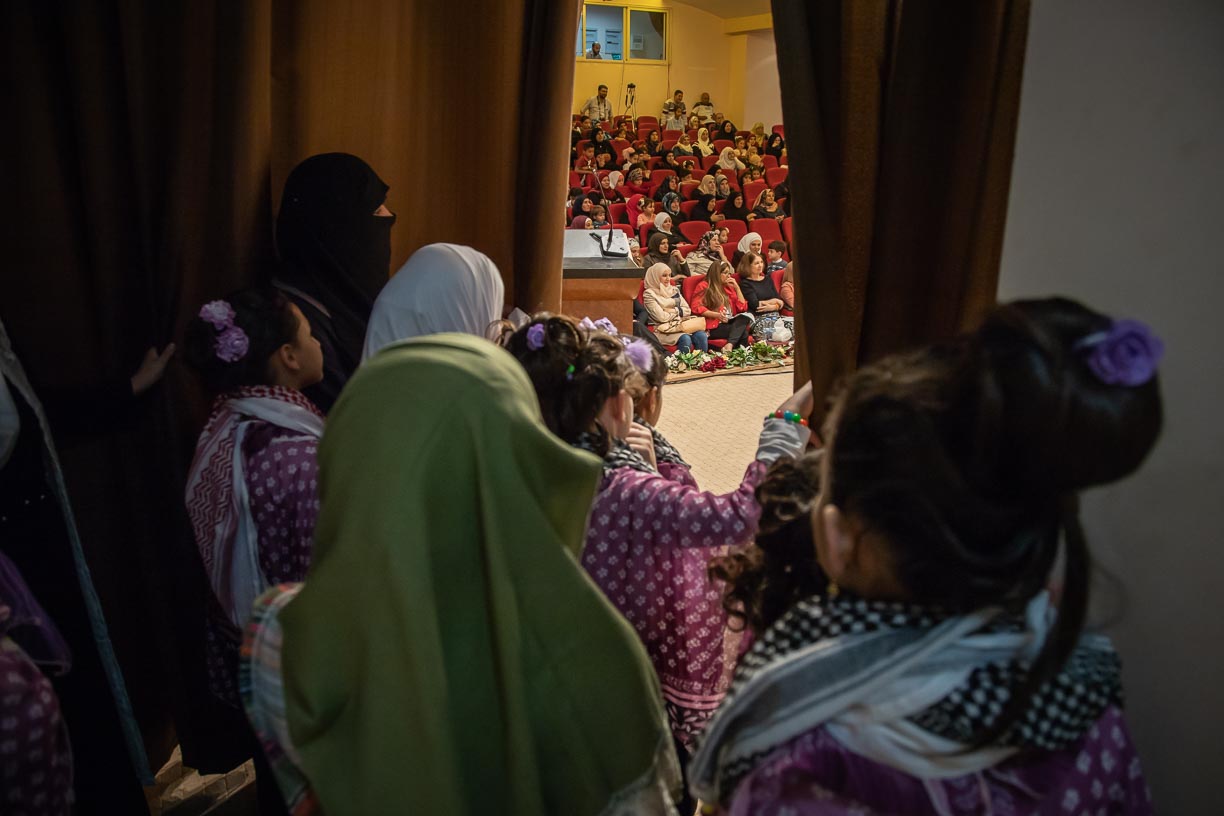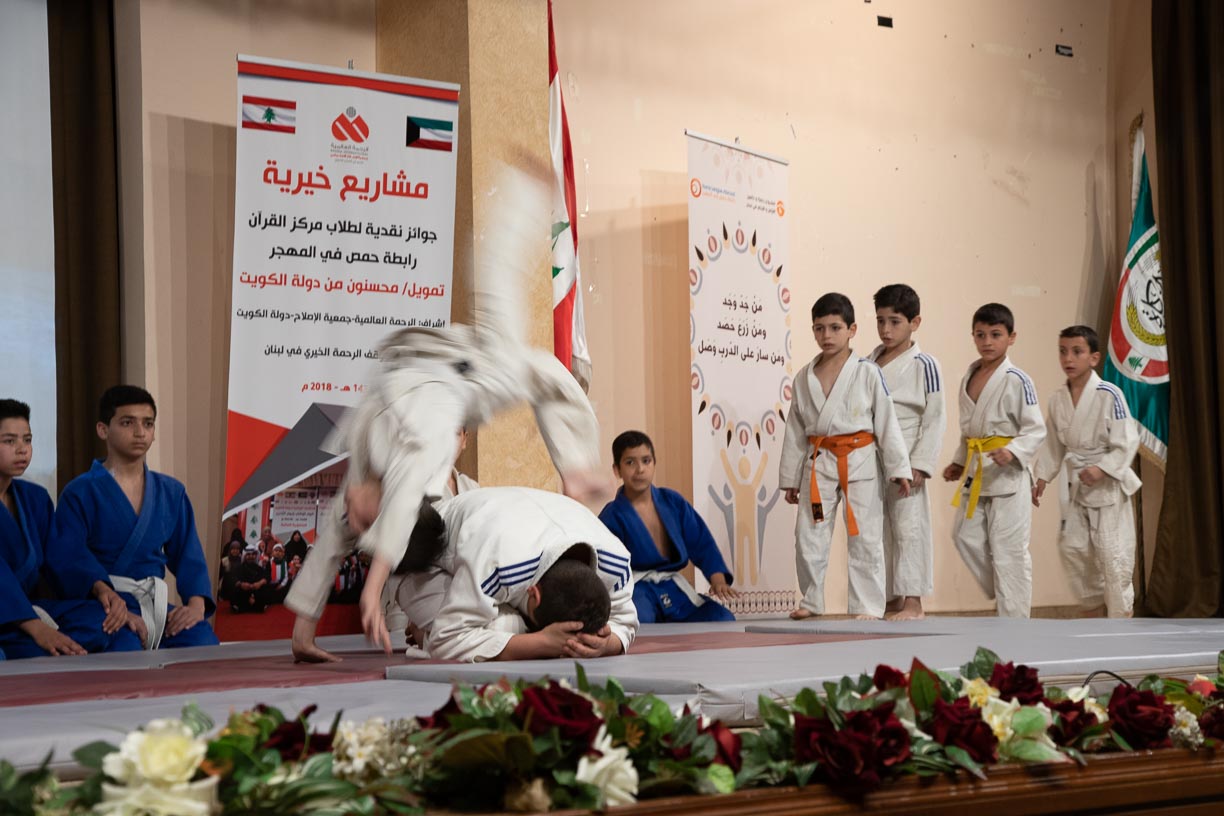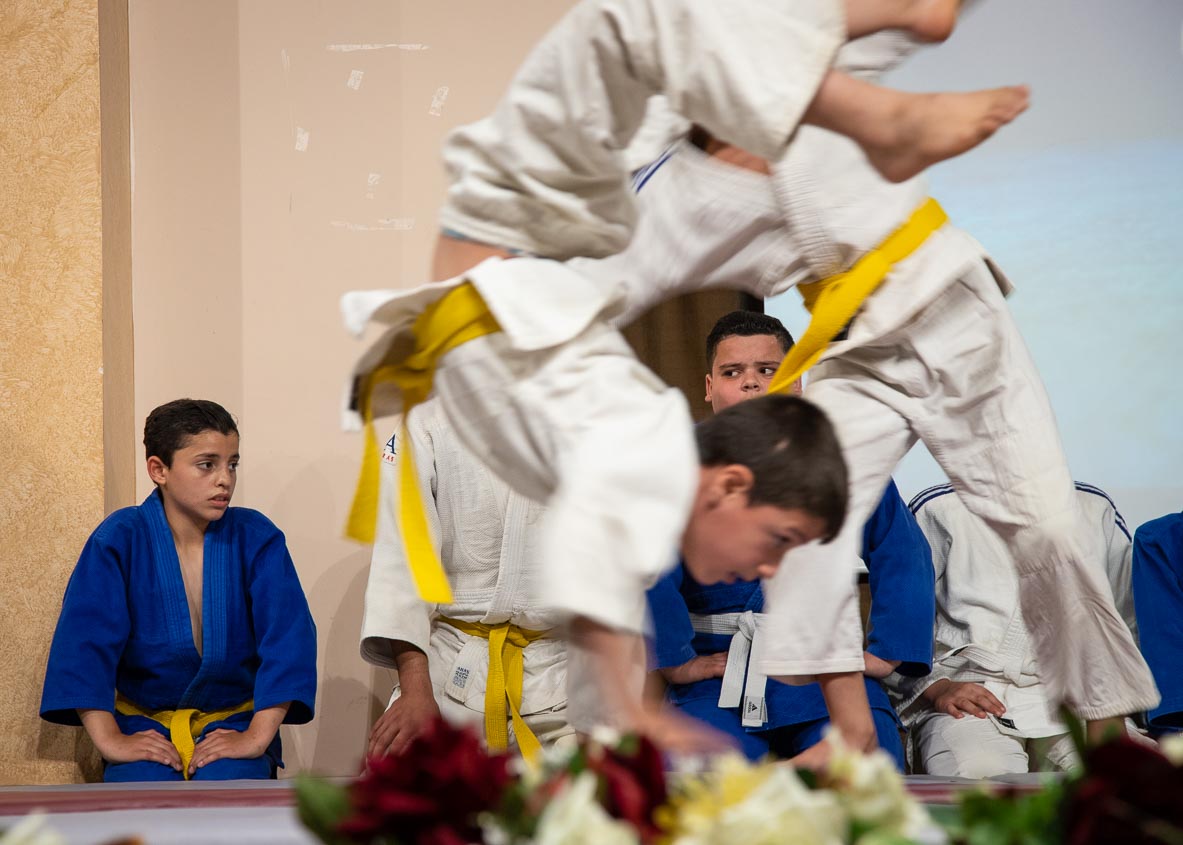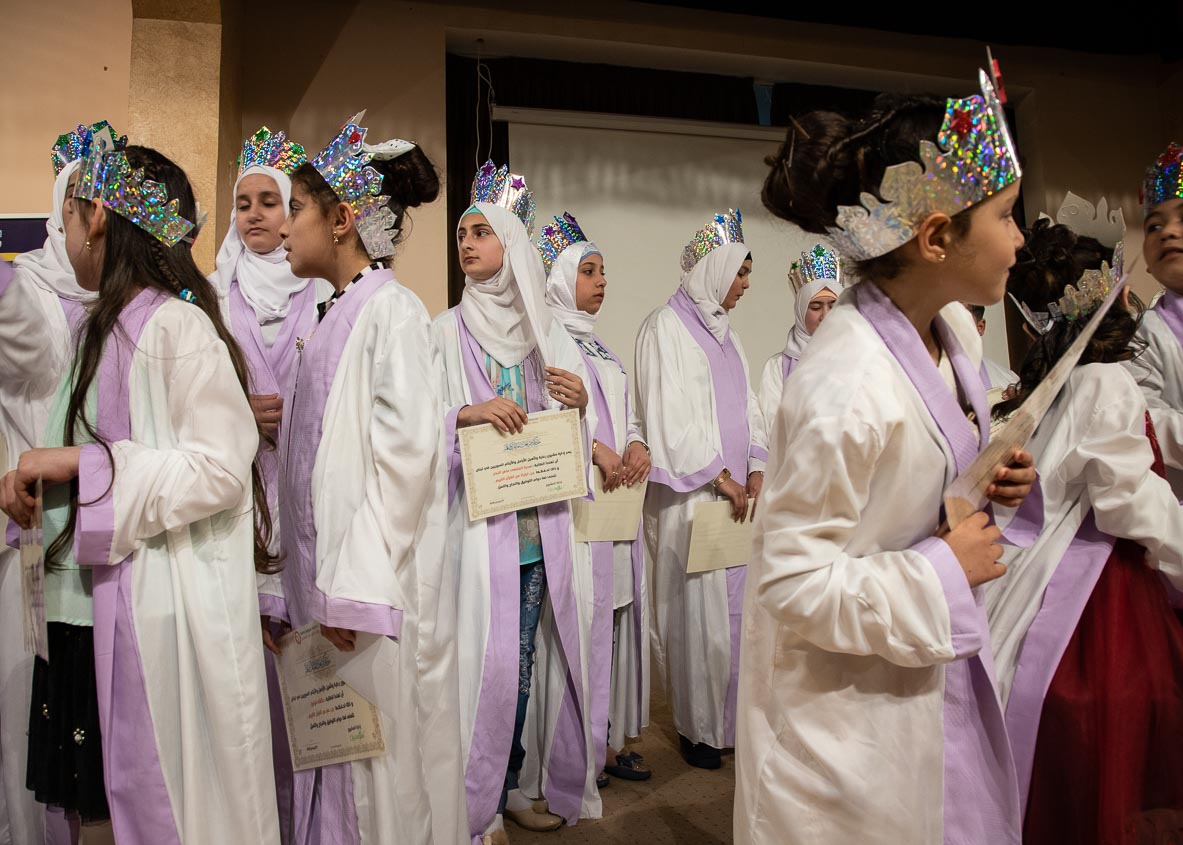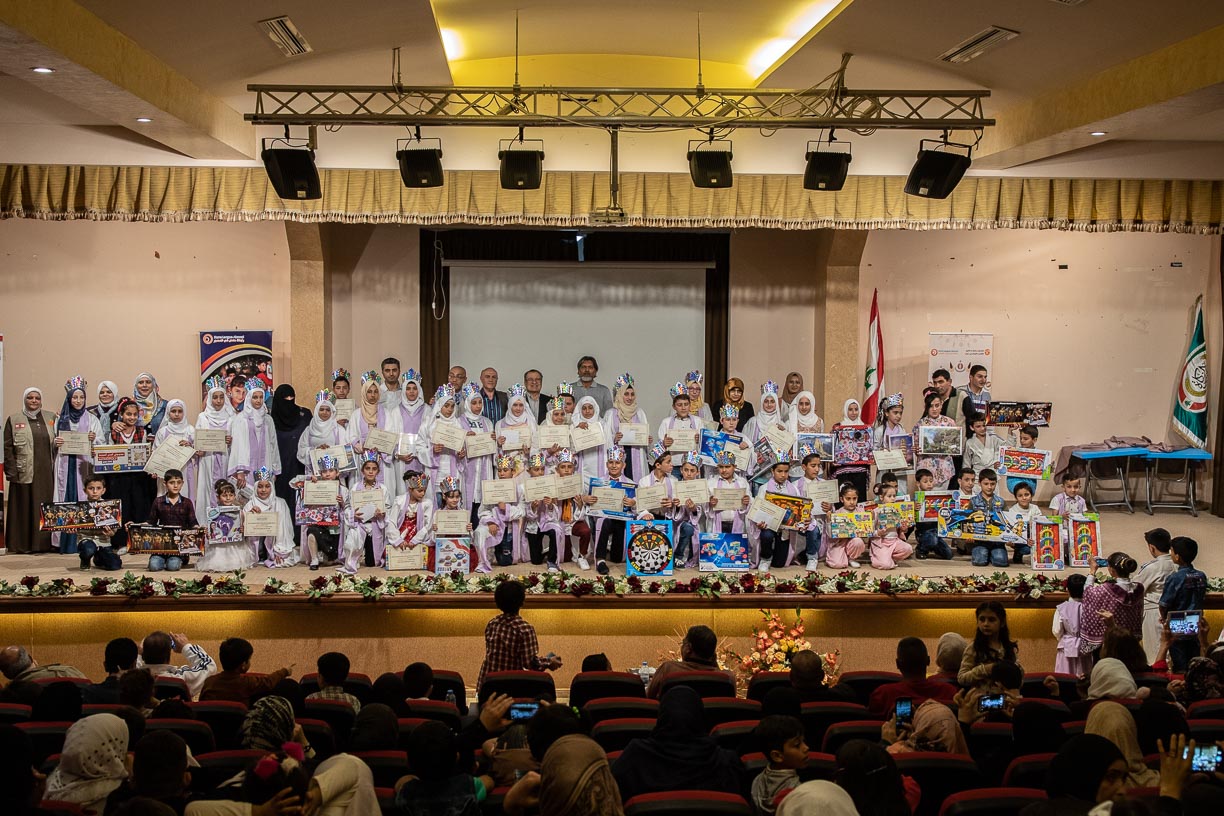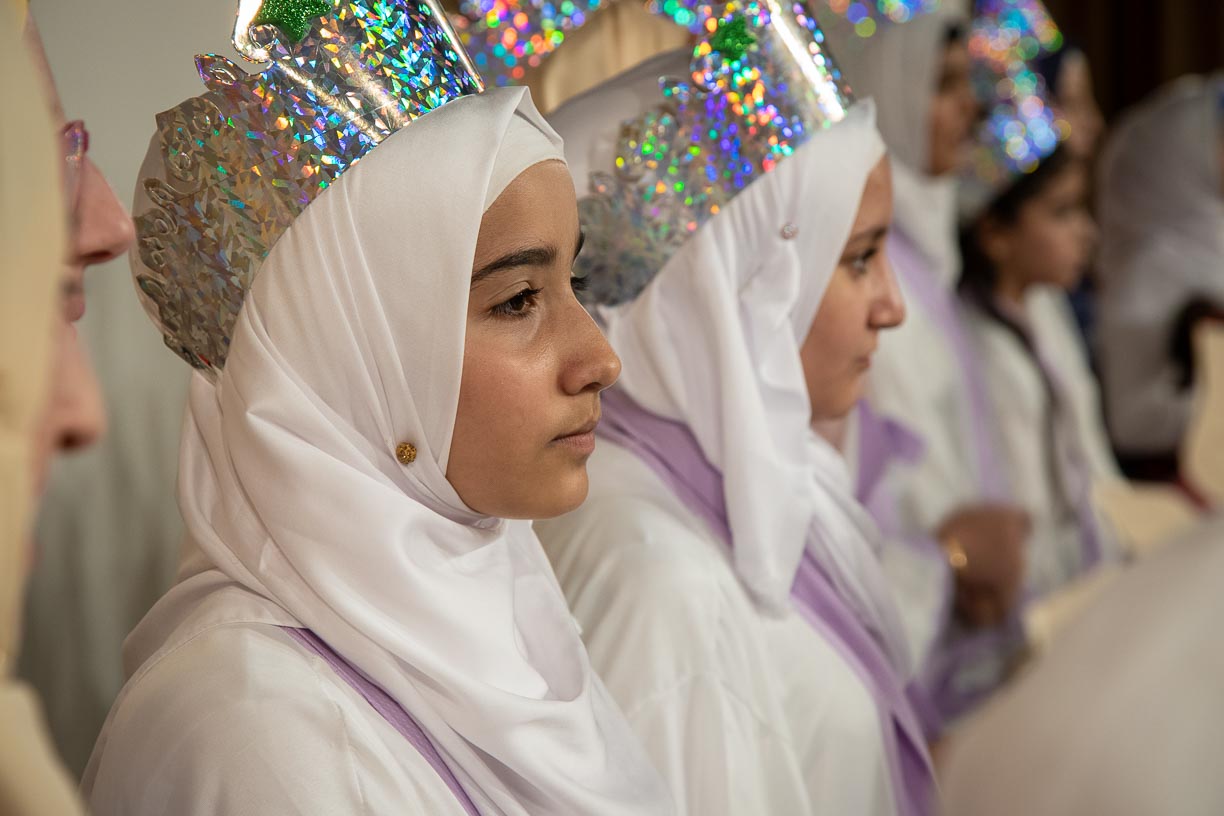One of the three Homs League Abroad centers for Syrian refugee widows and children sits on the end of a cul-de-sac in the Al-Zaytoun district and near to the Al Abrar mosque, an ornate building built in 2003 with a theater available for public events.
On the final evening of the Alalusi Foundation exploratory trip to Tripoli to inquire about how we can support the work of organizations that help the Syrian refugee population there, our group of volunteers were invited to a concert planned and performed by the residents of the Tripoli HLA centers.
As the time of the concert drew near, the mosque compound, already busy from Jumu'ah, children ran back and forth from their home down the road to the theater with supplies, costumes and props. In front of the HLA center, a group of boys in black t-shirts emblazoned in Arabic on the front the names of cities in Syria signalled to us to take their picture. Little boys and little girls danced as they made their way to the mosque, hardly able to contain their excitement for what was to come.
Entering from a side door, we were guided downstairs to a basement level where the impressive theater sits. Several hundred attendees can be accommodated at a time and all the technical elements were provided for in a small booth above the audience. The roar of excited kids and murmur of parents filled the hall. With another hour to go until showtime, the energy already was high.
The show began with a reading from the Quran then continued with an opening speech in Arabic and English by Dr. Mazen Charbak, General Manager of the HLA centers in all three countries - Lebanon, Jordan and Turkey.
Words of appreciation from the children to the administration for caring for them and providing attention in a variety of fields was delivered by one of teens. The first song, Alli Alsoot was done with an expressive dance. This performance delivered the message of love for their homeland and hope that they may return, no matter how long their exile ends up being.
A play of women and three men followed done by three young kids wonderfully. This play talks about the three things that we need in life - money, success and love - and demonstrated that love is the key to everything in our lives.
The song O Bird Take Me to My Country, Syria exhibited the longing and nostalgia for Syria and in the the description of some cities damaged and the hope of return and reconstruction.
The play The Orphan described the situation of an orphan after the loss of his parents and the injustice of this and society in general. He reimagines the journey and suffering until he arrives to the center of care for Syrian widows and orphans in Lebanon where his needs are met and road to recovery begins.
The song My Country is a national poem in which it describes all the beautiful qualities that every man sees in the place of his birth.
The final play, Mother-in-Law and Daughter-in-Law is a comedic scene that had the audience laughing.
The final act was a Judo show where the boys demonstrated their various levels of mastery of the martial arts, a popular sport in Syria and throughout the Middle East.
The show culminated with the honoring of winners with Arada. Arada expresses a description of the city of Homs and some of its features, including words about what is success and excellence. Children and widows who exemplified the excellence the community strives for, including demonstration of memorizing a section of the Quran, were awarded with certificates and other gifts of appreciation.


